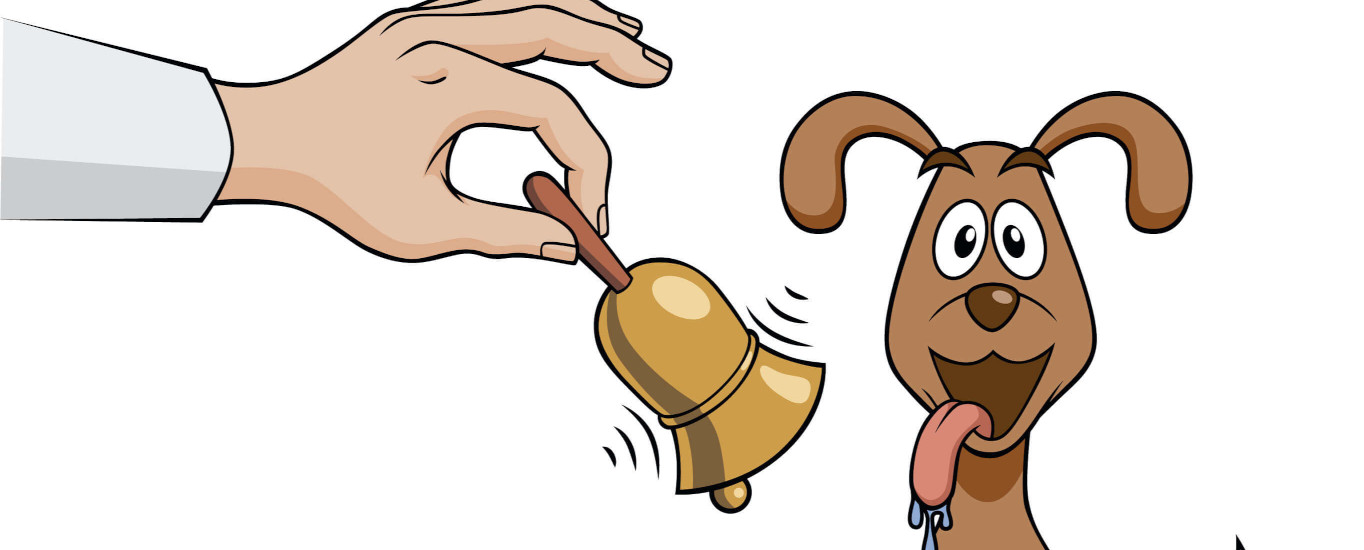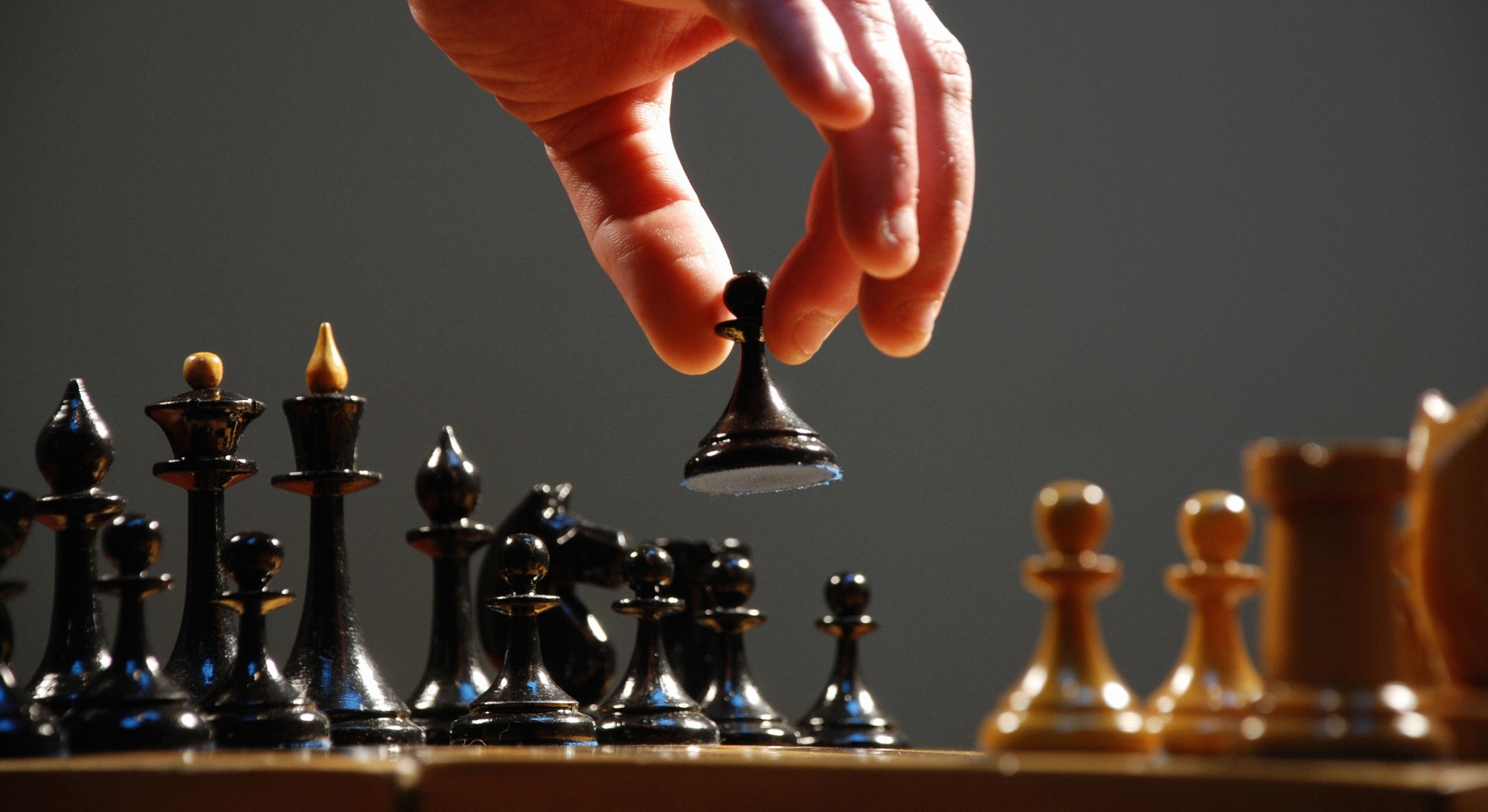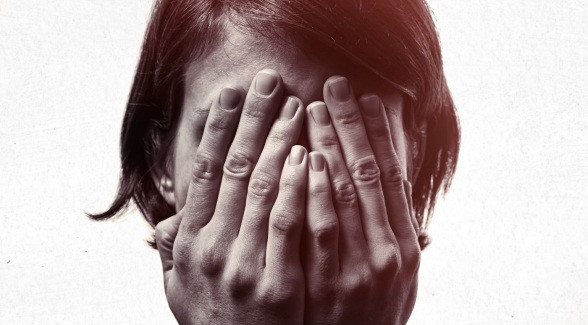As a young person enters the new adventure of becoming a parent, they are confronted with challenges they can never be truly prepared for, no matter how much knowledge they acquired beforehand. Making mistakes and learning from them in practise seems to be the only way for us to progress, be it as children or as parents.
Watch a Short Excerpt:
Transcript (continued):
William: We often think there are these two worlds: the one where children live in this blissful ignorance, and then "the real world" that they need to be prepared for. And so if we really believe that there is a difference between the two, we must take ourselves so seriously when we think that we have the experience that our children are lacking and that we need to imbue with them with it, maybe like planting a seed and hoping that when they are of age that they will have the toolbox they need to deal with the world. There are so many things that can go wrong with that, so I don't like that view. That's why I was mentioning it in a sarcastic way. But we need to think of their future in some way and try to prepare them for it. What things do you think should we concern ourselves with?
Steven: Good question. Where to start with that one? Yeah, that's what parenting is, I guess. It's like "Where do you start with preparing your children?"
William: Yeah. What are the basics? Before the show we mentioned choosing between right and wrong to be something that children learn from parents. And that's automatically. You don't even need to teach that to them explicitly. They will just see how you behave in certain situations, and then assume that that is what a good person does. I guess that presupposes that they accept you as a good person, and you have a good connection.
Steven: I guess the basics of "treat other like you want to be treated", compassion, empathy, awareness of your own needs. It's so easy to swing to one extreme or the other: always focus on others or always focus on yourself. There has to be a fine line when parenting. Because the prime example is if a child has someone that comes over like on a play date or whatever and that child is playing with their toys, then your child is upset and therefore wants their toys back. And then you've got this whole process of trying to teach about sharing. But then at the same time has a child learned about possession and what's actually theirs? And it's okay to have theirs. They shouldn't always give away what is theirs. Because then they themselves will end up having nothing in their life. Again, these are things. But it's just a general basic lesson that gets a bit muddled sometimes. That's you know a prime example of one lesson you can try and work on.
William: I think I'm confused about that topic myself. Does that say anything my bringing-up?
Steven: Sorry, say that again.
William: I myself am confused about the topic of possession and sharing. Does that say anything about my bringing-up?
Steven: I'm confused too, mate, still. At what point is it okay to claim something so that you're happy because it brings you happiness. And then you give it to somebody else; and you can get happiness from that. That can be a psychological programming, that you can be generally happy from that and have an emotionally good response. But again, deep down do you resent the person for having that because you want it? And at what point do you end up being miserable because you have nothing? And again, I think the key lesson is adaptation. I think in any specific situation the circumstances can be different. So you're trying to teach your child that in any given situation they can find what's optimal for them and then someone else. That's my personal opinion. Because you have to protect yourself; you have to be happy yourself. You have to generally be looked after. You have to look after yourself. So that should come first. Then if you can use experiences you gained to help others. But in any specific situation that can change. One time the best option is to look after yourself, not go outside and socialize or something, because you're tired as an individual. And then another time you may be tired and exhausted, but actually someone's health is so bad that you have to go and help them. Or you feel you have to go and help them. Or you feel like the thing is to go help them. And you put your own thing aside. It all depends on the specific moment.
William: I like what you said about empathy earlier. Because yes, a lot of questions can be answered by putting yourself in someone else's shoes. You know "How would that make you feel if someone did that to you?" And I believe most people have that ability. There are psychopaths who actually can't do that. And so they have a really hard time learning how to deal with other people.
Steven: Now that's a dangerous discussion for the future.
William: Yeah yeah. I don't want to leave the average person, I don't want to leave that the norm, what most people go through. That would be too much today. But sure, yeah, sociopathy, psychopathy could be another great topic for another day. So everyone has the capacity in that sense for empathy. But we need to help children become aware of it and how to use it, how to not overuse it. You know there are people who sacrifice themselves too much for other people's well-being. That's challenge as well. So everything in balance.
Steven: Personal experience: I think this is a key point of this whole discussion, I think, is the empathy. My personal opinion is that you're right. Actually 90% of the difficulties between us and other people can be solved by empathy, by going "How would I feel if I was them?" And that can lead to a better situation. But in terms of going too far with empathy: I, as a teenager and into my early adulthood, had too much empathy. I could imagine what it was like in a lot of situations that people go through. And it would leave me crying for days. I would literally get home from school or from work, and just that's all I could do, was just... Because I've got ten different people I know, all going through struggles, and then being able to actually feel what each of those people could feel, or at least imagine what they could feel. That's the difference. And yeah, I just would be overwhelmed by it, would not be able to function because my heart and soul hurt for them. So it's important to, as you said, to make sure you don't go to the other extreme. Because actually, I'm a personal believer that too much empathy or love can be just as bad as too much hate and selfishness.
William: It sounds like there might have been situations where the person you felt for didn't even have to go through the pain that you went through when you imagined what it must have been like for them. Because they somehow could suppress it or switch it off.
Steven: Yeah, they could probably deal better with it than I could. That's what's interesting. And so as a parent, going back to the point, is that you need to teach your child about empathy. Definitely, because it's a beautiful thing that I think would solve a lot of problems.
William: Not everything is easily transferable. It can be also really difficult to put yourself in someone else's shoes. Or when someone treats you a certain way because they believe they know what it's like for you, and actually they don't. So there are other pitfalls there as well.
Steven: Very good point.
William: And again, a parent cannot prepare you for everything like that. So it's something you need to keep working on for the rest of your life.
Steven: Yes, it really is.
William: It's like a parent can draw on the experience they got until they became a parent. And then they try to help you out in any way they can with that experience. But it will never cover everything and. So you need to make your own experience, too. And that's when we get to that stage that we mentioned earlier: how you become more of friends when you're more on the same level, and you start to need each other and you are interdependent, like you said.
Steven: Yeah, you have that choice: Do we go on? You have the agency. But also the difference between theory and practice. So your parents have told you everything about how life works. But unless you go through it yourself as an individual, all that theory means nothing really. And you should be able to apply in a practical way yourself.
William: I have another question about Freud. He said that our psyche is made up of three parts. You've probably heard this very popular theory: the ego, the super-ego and the it. Yeah? You know those terms? They have different names. But my understanding is that super-ego is like a conscience. It tells you what is right and wrong. And I don't know if we are born with those or how much they come from our bringing up, or upbringing. I wonder if you know more on this topic, especially this thing that I heard that the father, even more so than the mother, will be internalized in the child's psyche as the super-ego of the child. And I wonder if it's rather the father because he is usually the one who makes the rules: "This is how it's going to be." And then the mother is typically the more forgiving, merciful part: "Oh, don't worry about it too much. It'll be okay next time. But the father is like: "No. The law is the law." And society is built up in much the same way, where we have police and law. But we also have friends and, you know, it's like a mirror of the parent situation. And one of the reasons that Americans vote for someone like Trump is because they like being told what is right and what is wrong by a strong man. You know, this comes from from that internal psychology about parenting as well. So it has huge consequences and is reflected in many parts of life. But back to my question: Do you do you think there's any anything to that that, that a parent can actually have so much influence on a child's development that they will give the child a sense of right and wrong for many years, maybe their whole life, until the child finally realizes that the parent isn't perfect and no, they didn't know what is right and wrong properly? A lot of it they decided for themselves or got from their parents and just passed it on.
Steven: Yes, there's definitely a circular nature to parenting. It must be from both the parent and the child. The parents obviously giving the informationm doctrine, rules, non-rules, whatever to the child receiving and wanting just to please the parent, that it becomes such a bond, such a connection of "This is what's right, this is what's wrong", that yes, I think there is many cases... Again Every child is different. Some children straight away, kind of, if they feel their parents perspectives aren't necessarily right or whatever they can change them and adapt. Whereas a lot of, yeah I think the majority, seem to through those things I just mentioned repeat what their parents taught them. It's why we have situations where families will stay the same like political view or same religion. Because those things have been so ingrained and installed in the individuals through generation to generation. So yeah I think there's definitely a factor there. I think it's why we don't evolve as in our mental and emotional and our broadening of perspectives as much as we probably should think we should as a species. Because I think that (1) the desire to be right and (2) the desire to make others see that we are right... Therefore that happens into the child, and over and over again the child has the same perspective and wants their child to see that their right as a parent. Why things don't change: I think if you look a history, it just constant repeats itself.
William: I like that perspective: how you look at humanity as a species over a long time frame. And it'll show you some positive things, but also some negative things, like stagnation. Because greed, for example, is contagious and can take over your life and your community, your whole way of life. But then there are always people who are more interested in being ethical and doing something that's right for everyone. And it doesn't mean that anyone really knows what's right and wrong, especially for other people. As you were talking I was thinking of science, and whether scientific research can help with this question. There are people who believe it can. This is in the field of humanism, for example. I'm no expert. Maybe you know more on the topic than I do. But people in this field want to learn what is objectively good and right. And some things are really obvious to us. For example inflicting unnecessary pain in someone else.
Steven: How do you define unnecessary pain? This is great, because it's a great thing about science and philosophy and morality and ethics. Because unnecessary pain, well... I don't know. I could give an answer to your question. But I'll try not to derail us too much, as I usually do.
William: No, but it's a good critique. Because a child, for example, will not always see what is the use of something that you inflict upon it; but the parent will.
Steven: Vaccination is a prime example. So in the moment the child thinks. "This is painful. what are you doing to me? Run away!" So it thinks it's unnecessary pain. But we believe that by giving the vaccination and see the science behind it, that actually it's beneficial to the child.
William: I find it helpful to always think of the parent as a big child, and that they would seem just as clueless as a child to them to someone who has more experience. So you're never done learning and evolving. And I guess people who think just the opposite of humanists and and certain scientists are religious people who believe that all right and wrong has to come from God. And I think you can go too far in that direction. You can become irresponsible by just looking up what the Bible says for every question. Well, for one, it doesn't cover every question that we have these days. But also if God wants us to do right and wrong he doesn't want to be a dictator. He doesn't want to have to command us in every matter, but wants us to learn what is right and wrong for ourselves. And we want similar things for our children. So there again, it's not quintessential to do the right thing all the time, but to learn what is right in a natural way. And that process in itself, I think, you need to see the value of that process to be a good parent.
Steven: So I seem to know a lot of the psychological theory. But I never know who said it or where it comes from. And so, we were discussing about Freud and super-ego and the three different things. And I think that part of parenting of each other is teaching that we can change. So a lot of people think they can't change that impression. So if you've constantly been taught a certain way by a parent or whatever, then by yourself you may overcome it. But it's not the change that you have to change it, but that you can change it. So we teach each other that we can we can change things, that if we want to, if we feel it's right or wrong ourselves, personally, that it can be changed. Because often it's more of a dictator thing for everyone. It's like "You must change this. Your parents were wrong." Or "You mustn't change that." Well no, the person has that right, to come to their own conclusions themselves. So it's teaching that actually yeah, if they want to they can change. That option is there. And over time that will help them to realise if they want to change then they can.
William: Yeah, that's crazy. It's like big children trying to be smart enough to tell little children what to do...
Steven: ...when often the little children are actually right.
William: Yeah. That's the amazing thing. I once saw on YouTube how a father had a son with special needs physically and mentally. I don't remember the exact condition. But that's not so relevant anyway. And he was interviewed about his life and asked things like "Does your son hinder you with leading a fulfilled life? Does he make it difficult for you to do everyday stuff, be it working or going shopping or whatever?" And the father was just... he wasn't offended, but he was very surprised at this foreign perspective. Because he said: "My son is the greatest blessing I could ever ask for, in the condition he's in, because there's so much I can learn from him. And if it weren't for his condition, then maybe he would..." I mean, this is very much paraphrasing. But "...he would probably be so normal, in a way, that I couldn't have this unique experience and learn certain things that you can learn only from people who are so pure and who have very different priorities than most other people." So that was very eye-opening and humbling to see. Because it's true.
Steven: That learning is love, isn't it. You know learning is: you learn how to love and be loved in a very extreme way.
William: When people talk about old people as being a burden, like a financial burden, because they're no longer contributing to society in the sense of creating profit...
Steven: Yeah, so disgusting.
William: Yes. That's disgusting. And the least you can say, objecting to that, is that, and this is also what what some old people tell themselves to alleviate their own conscience when they feel like they're a burden to younger people: They can say that old and sick people are there to teach you humility, to give you the opportunity to serve, to look after someone else than just yourself or your company or whatever. And so, if there is no other reason then at least that, why we should have sick and old people or you know dependent people in our surrounding.
Steven: It's almost as if the nature of existence is designed to teach us one extreme of how to love or one extreme of how to be selfish. When you think about parenting and children and being an adult and being an elderly person, everything is designed to either take you to one extreme or the other, really, whether it's to look at what could be positive about the situation, like that father, where he was just like "No, he is teaching me about how to be a better person." Same with children, same with the elderly; or like I've talked about right at the start about how you could easily fall into the trap of resenting and hating and being upset by a situation. And it's almost like we have to constantly put on our conscious choices to be able to stay positive and stay happy and to learn from these situations and to do what feels right, what seems right and make sure that the happiness the love is what is actually prioritised.
William: That's a great note to end on.
Other Episodes:
Ep. 51: How Conditioned Are We ?
How much of what you do, think and feel comes from intentional, free chosing? How much of your actions and decisions are pre-programmed? You are the product of your upbringing, culture and genetics. What is out of our control? What can we influence? How can we counteract our predestination?
Ep. 50: What Am I Responsible For ?
Are you taking too little responsibility for your actions, or perhaps too much? How much are you able to understand or determine the consequences of your decisions? Are you in control of anything? Is free will an illusion? Can you do something to improve your thoughts, feelings and relationships with...
Ep. 49: Empathy Can Be A Super Power
Everyone has the choice of either living isolated from other people and their own feelings on the one hand, or to connect with others and their own emotional core. The road towards connectedness involves vulberability and weakness. But it leads to a very rewarding ability that includes deeper understanding of...
Ep. 48: Why Am I Ashamed?
What secrets do you have? What facts about you must never become known to others? What happens in our childhood that implants beliefs in us that hide away for the rest of our life? Can we uncover them deliberately? Can we regain the emotional freedom and levity that playing children...







